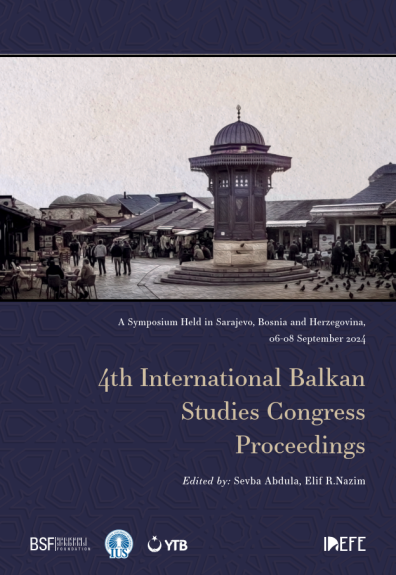Proceedings
Yugoslavia-Soviet Union Relations in the Context of Hierarchy Approach (1945-1948)
Authors
-
İrfan TatlıPhD Student, Sakarya University
Synopsis
Yugoslavia, with its unique understanding of communism and its fo-reign policy pursued between the Western Block and the Soviet Union, occupied a significant place in the international politics of the Cold War years unlike pro-portion to its resources and power. Yugoslavia, which became the first country to adopt to communism without any external intervention following the Soviet Union, had progressed towards becoming an independent power in Southeas-tern Europe with its own unique understanding of communism. This progress has disturbed both the Soviet Bloc under Stalin’s leadership and the Western bloc. This paper aims to explain the relations between Yugoslavia and the Soviet Union between from 1945 to 1948 utilizing the Hierarchy approach, which is one of the most important challenges recently in International Relations discipline. Within this framework, the question of why Yugoslavia, under the rule of Josip Broz Tito, challenged the Soviet Union hierarchy, will be examined at the sys-tem, state and individual levels. This examination will encompass Yugoslavia’s support for communist rebels during the Greek Civil War, its divergence from Soviet Union on the Trieste issue, and the factors surrounding the formation of the Balkan Federation. The study argues that Yugoslavia attempted to challenge the Soviet Union hierarchy stemmed from a culmination pressures and dispara-te policies of the Soviet Union towards Yugoslavia convinced the Yugoslav leader-ship that the Soviet Union under Stalin’s leadership as a threat. There are various reasons for this challenge at the system level, state level and individual level.
Copyright
Copyright (c) 2025 Idefe Publications
License

This work is licensed under a Creative Commons Attribution-NonCommercial 4.0 International License.
Downloads
Publication Information
-
Publication TypeChapter
-
Volume
-
Pages221-236
-
PublishedJune 7, 2025
-
Series
-
Series PositionProceedings 04
Abdula, S. (Ed.). (2025). Yugoslavia-Soviet Union Relations in the Context of Hierarchy Approach (1945-1948). In 4th International Balkan Studies Congress Proceedings: Vol. Proceedings 04 (pp. 221-236). Idefe Publications. https://doi.org/10.5331/
